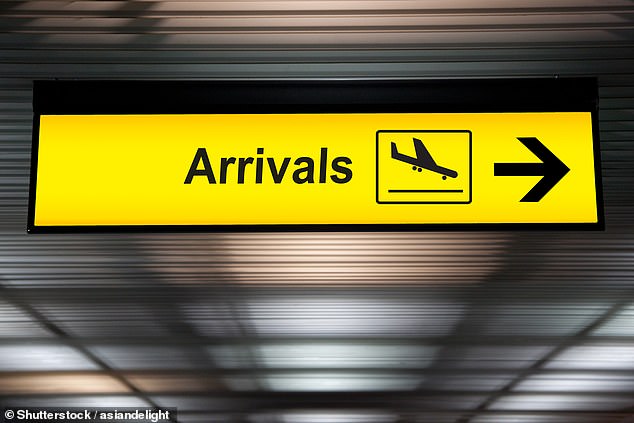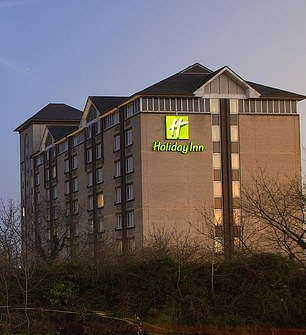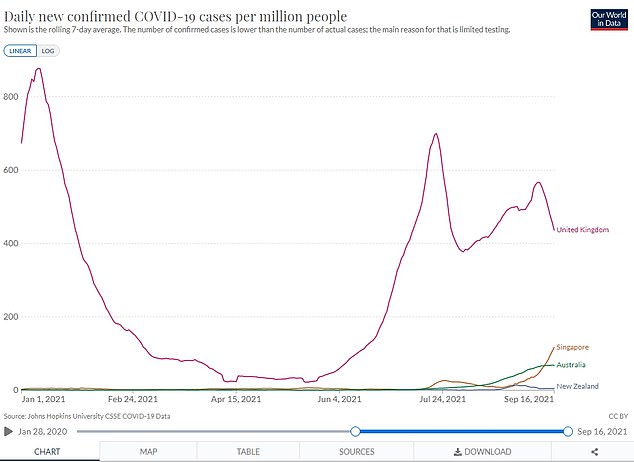Forcing travellers to stay in quarantine hotels may have prevented thousands of potential Covid infections and deaths, a new report suggests.
The report, from No10’s scientific advisory group SAGE, collected evidence from international studies on Covid transmission in hotel quarantines.
Britain’s hotel quarantine scheme has been controversial, with MPs slamming them as prison-like and authoritarian. Those who were forced to stay in them were made to pay up to £2,000 out of their own pocket.
Yet the latest study suggests that, despite their faults, they may have protected the UK.
The SAGE file, released by the Government today, cited a study on hotel quarantine breaches in Australia and New Zealand.
The study found that there had just been one breach of the countries’ combined hotel quarantine efforts per 173 Covid positive cases among travellers, as of March 2021.
This means the vast majority of travellers with Covid were kept in the quarantine system, rather then spreading the virus to hotel staff or other guests or the wider community.

A SAGE report suggests controversial hotel quarantine rules may have prevented thousands of infections reaching the community. Scientists cited data showing Australia and New Zealand’s quarantine system had recorded only one breach per 173 Covid positive cases.
The SAGE document also highlighted some potential dangers of Covid quarantine breaches.
The scientists cited the case of the Australian state of Victoria’s second Covid wave, which was caused by a hotel quarantine breach, and resulted in over 800 deaths.
Current rules in England mean people who visited a country on the ‘red’ travel list in the 10 days before they returned to the UK must quarantine in a hotel for 10 days upon arrival.
They are charged fees of around £2,000 per person.
Anyone in the UK who breaks quarantine can be fined up to £10,000.
But many forced to stay in them have complained about ‘inedible food’.


NHS worker Amil Arif was one of those who said the meals served while in hotel quarantine were ‘unappetizing’ (meal pictured left). The Holiday Inn Slough (pictured right) cost Ms Amal £3,000 to spend 10 days in isolation.
Similar quarantine requirements also apply in the other UK nations.
The SAGE report also highlighted the hotel quarantine system in Singapore.
Between January and May 2021, Singapore had more than 10,000 people staying in its system every day.
There were only a dozen-or-so cases of Covid transmission within Singapore hotels in that time, with the outbreaks attributed to human error.
In contrast to the UK, breaking hotel quarantine rules in Singapore carries a prison sentence.
All of the three countries referenced in the SAGE report Australia, New Zealand, and Singapore, have vastly fewer Covid cases than the UK.
Statistics from Our World in Data – which tracks the state of the pandemic – show Britain recorded an average of 436 daily cases for every million people in the week ending September 16.
This compares to 116 daily cases per million people for Singapore, 68 for Australia, and just 4 for New Zealand.

Britain is recording vastly more new Covid cases than other countries cited in the SAGE report on the effectiveness of hotel quarantines
Source link : https://www.dailymail.co.uk/news/article-10001777/Controversial-quarantine-hotels-work-just-1-170-infected-travellers-spread-virus.html











